5 Nigerian Artists Open Up About Mental Health
Olamide, Joeboy, Jahblend, WurlD andTems tell us how they keep up their mental health as public figures in the Nigerian music industry.
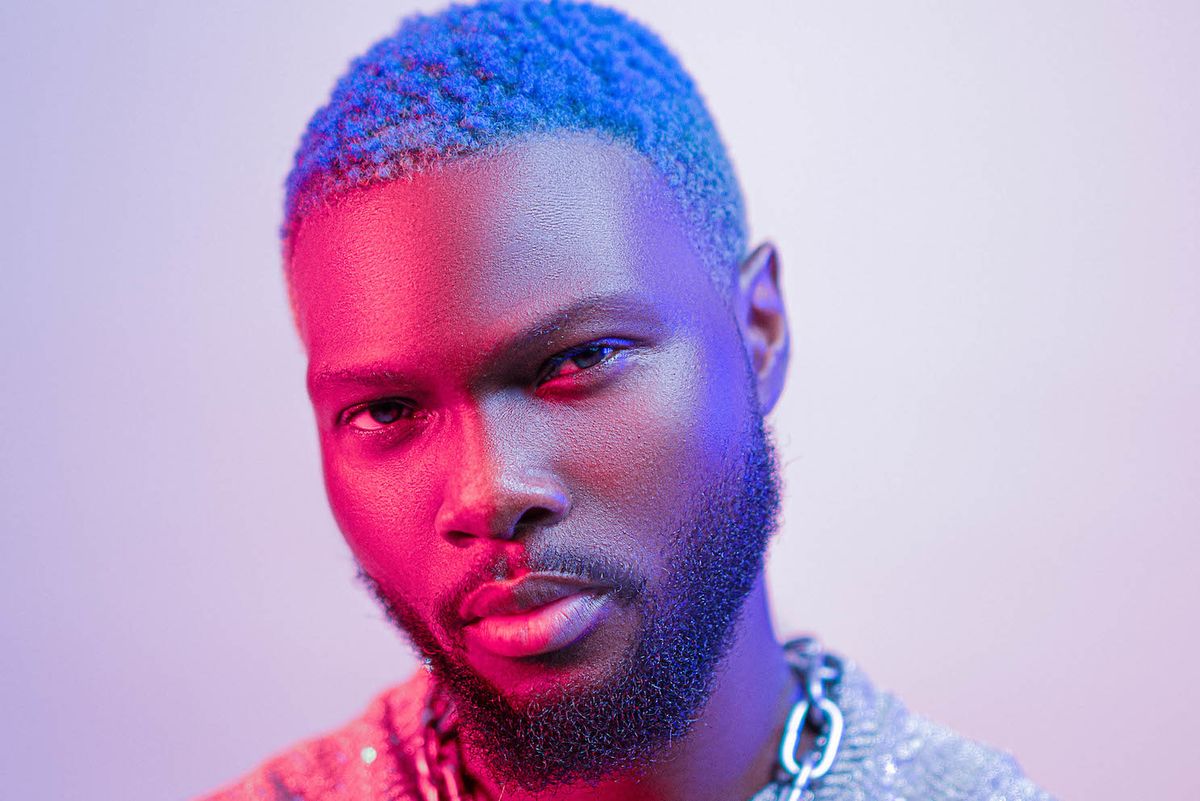
WurlD.
According to a 2016 study, musicians are three more times likely to undergo psychotherapy than the average person. While being wrongly perceived and stigmatized as "western sickness," discussions about mental health awareness have made considerable improvements in the Nigerian music scene in recent years. As more artists shed light on the subject through personal accounts and counsel, the music industry is expected to prioritize the psychological balance of artists as they're the industry's lifeblood. Even more so following what an unfathomable year 2020 has been for most people.
Nigerian artists are typically heaped with a slew of battles that range between maintaining momentum in an ever-evolving industry, falling through the cracks, cutting through the noise of a saturated industry, balancing personal and public expectations, absorbing public scrutiny, the lows and highs of performing and connecting with audiences, meeting label/investor, media, fan expectations, and more. For many, it begins with seemingly insignificant thoughts which snowball into anxiety that in turn imperils their productivity and basically career.
In May, Atlanta-based label LoveRenaissance (LVRN) launched its mental health offshoot focused on psychological wellness, providing therapy and life coaching for its staff and artists which include Santi, 6lack, and Summer Walker. "In the Black community—I'm Nigerian—therapy or mental health isn't something we speak of. It's almost like breaking down that wall and trying something new," says Tunde Balogun, co-founder of LVRN.
Staying the cause, Olamide, Joeboy, Jahblend, WurlD, and Tems speak to OkayAfrica, divulging personal experiences, sentiments and how the Nigerian music industry can foster mental health awareness amongst artists.
Olamide
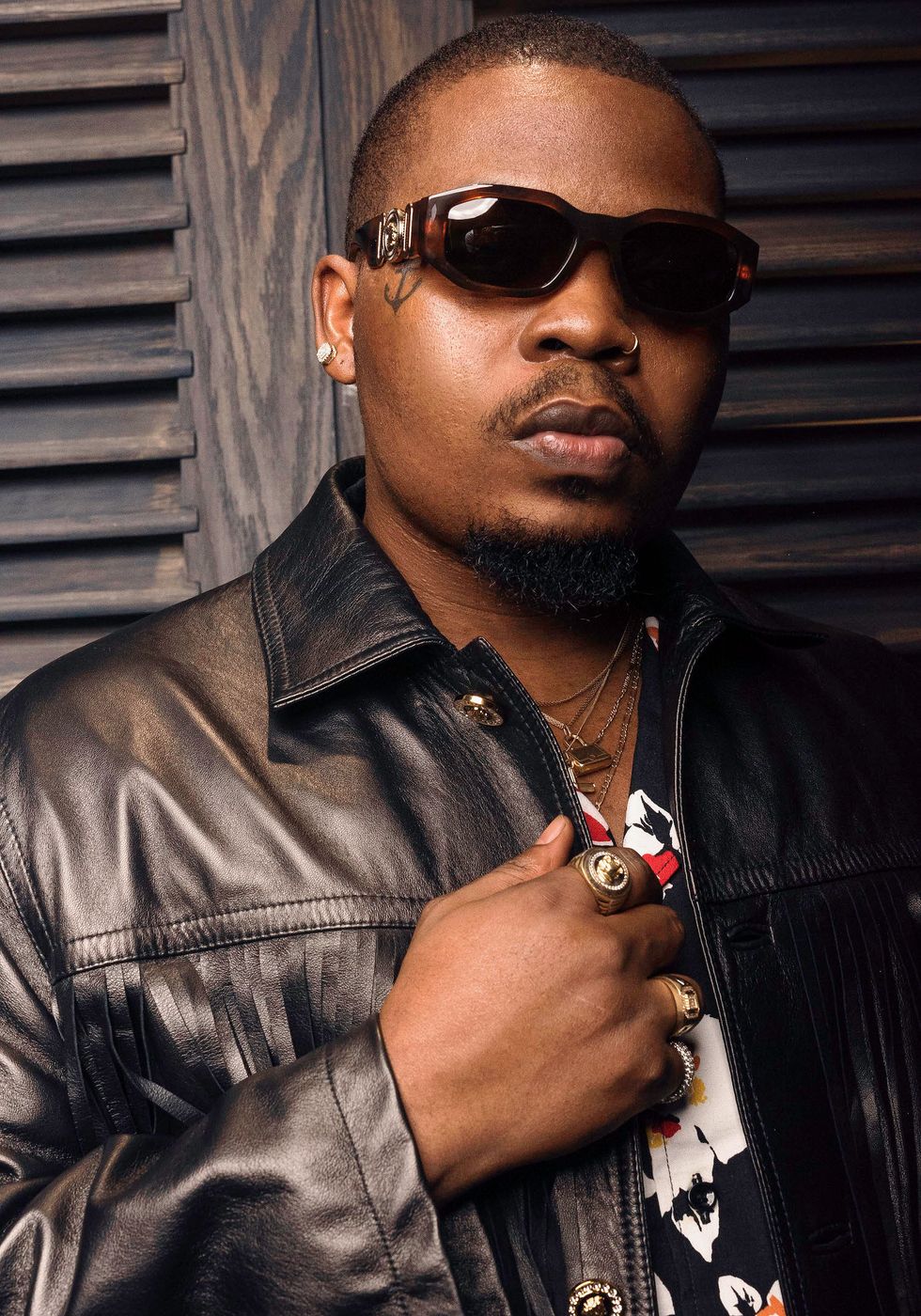
Olamide.
Image courtesy of the artist.
Can you recount a personal experience that threatened your mental wellness?
Being from the slum of Bariga, my parents never made me feel it was the ghetto as they made me comfortable enough with the little they had. I only realized it after leaving home, quitting school and becoming a studio rat. Being successful is a dream come true and I wanted them to enjoy the fruit of their labour. Just as it was about time, I lost both parents within a year. I was badly affected, I don't even know how I managed to make hits like "Motigbana," "Science Student," etc. I had no inspiration, no morale to come up with anything nice. Save for the mouths I have to feed, I would've quit music but thankfully, I'm better now.
Did you try certain things to help you feel better?
Not exactly. It took a while to realise how to manage it and what I needed to make me feel better. I did some crazy stuff like chronic clubbing but nothing changed. At some point, I started to feel alone, I'd lock myself up, go down memory lane, think about what my parents would expect of me wherever they are, how they'd love to see me keep excelling, the reason why I started music etc. I became more spiritual, listened to motivational audiobooks, watched OSHO on Youtube; all these aimed at getting something to make me feel better and I eventually did.
Off the 999 EP, "Rich & Famous" reflects certain stressors that follow fame, was that from a place of experience?
That song is about the things I knew growing up around ID Cabasa. I saw artists rise, fall, have great comebacks. They come around the studio and say things that they experience - which helped prepare me prior. I felt the need to put out a message to motivate several artists or whoever that's going through those things as I'm aware that many were not mentally prepared for this before it came. Fame is a spirit, money is another spirit, having fame and money is like madness. Also, while growing up, I listened to Jay Z to just hear things I needed to prepare me for stardom and a successful life. I thought about doing something similar for my fans and artists who look up to me.
Joeboy
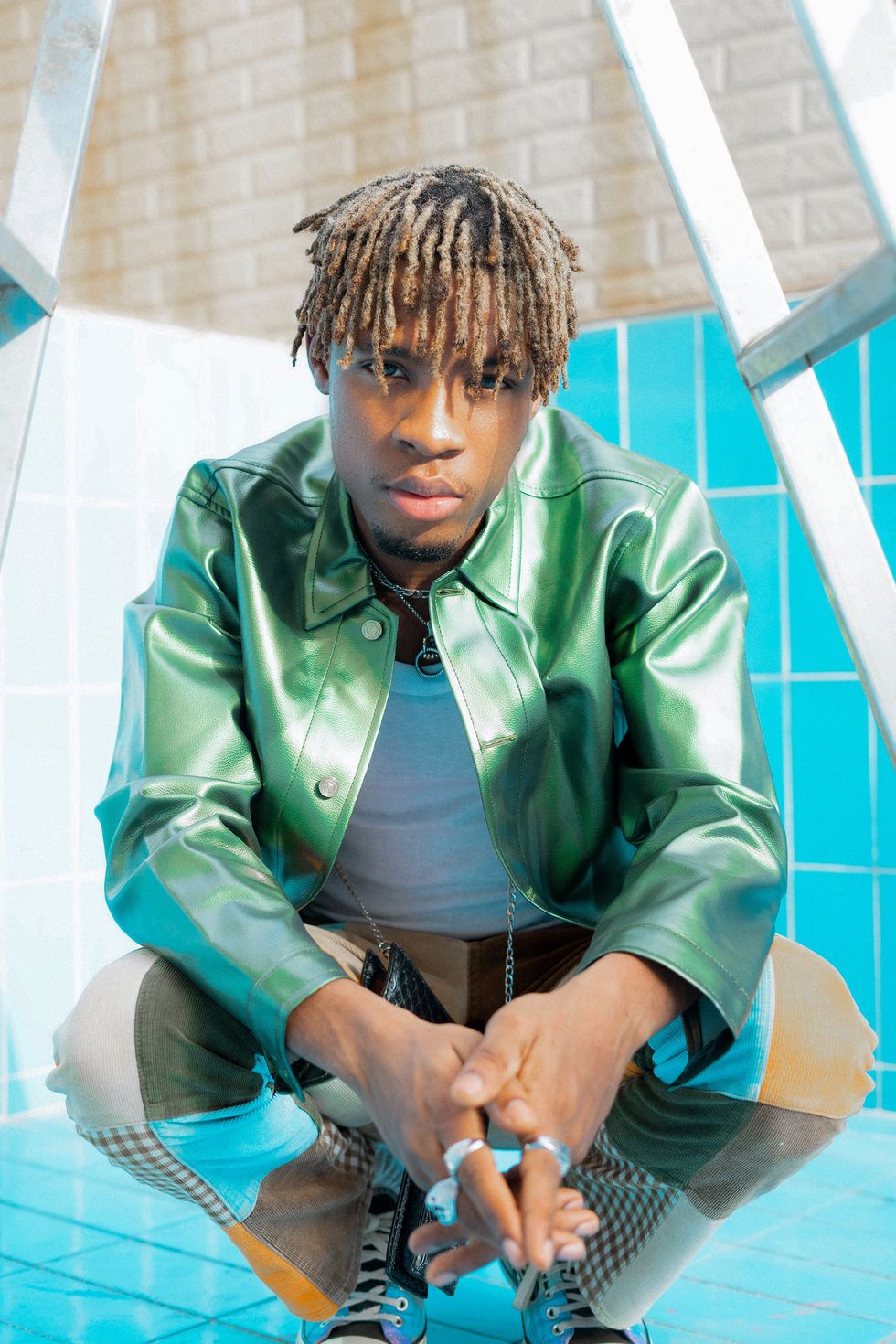
Joeboy.
Image courtesy of the artist.
When did you first become aware of the severity of mental health issues?
Two years ago. Honestly, I'd laughed when people talk about being depressed or staying off social media for a while. It used to be funny until I learnt about mental health and its importance. At some point, I too have been off social media because I was battling certain things including writer's block.
Did anything specific spur that awareness?
I started reading people's stories, then more books about it when I realized that the mind is one of the most important parts of anyone. Whatever we do and how it's done comes from the mind. It's not something to be taken lightly.
Have you had some personal experience that threatened your mental wellness?
Quite. Typically, I record many songs but at some point, it wasn't forthcoming. That was during the lockdown; I believe one of the triggers was that I was stuck within a place with not much to do. I felt defeated as everything about my artistry hinged on being out and doing the opposite for like two months messed with mind. Apart from speaking to someone, spending time on comic stuff, seeing movies—which is unlike me, watching and reading autobiographies of great entertainers are some of the ways I managed it.
Did you experience anxiety about the unlikelihood of your music cutting through the clutter?
Honestly, I did. Many big artists released music the same day "Baby" dropped. I couldn't sleep, my hands were shaky. I remember wondering if anyone would pay attention to mine. Anxiety will come but you can't let that stop you from doing what should be done. You need to do everything in your power so that you can forgive yourself if it doesn't work. For me, It either worked or not and I'll go again.
Have you experienced certain stressors that come with being a public figure yet?
Of course. You're out sometimes and everyone seems to want to take a picture, mindless if you're not in the mood to. While you do what you should as an artist, it's important to know when to take breathers; I try to give myself some. Also, being with an established artist prior helped with some ideas and knowledge on how to manage it. Especially as a beginner, it's not easy and it's important that one finds a point where they can be normal—not having to act like a star. We should always create that safe space around us like our homes, with no camera or so.
As artists are subject to public commentary, has social media taken a toll on your mental wellness?
Not anymore. It was crazy, it could ruin my whole mood for the day where I'm in the studio and lose the urge to create. I once had this experience that gave me perspective. On Twitter, someone called me and my music "wack." I was so worried about what I must've done to this person, that I checked his page, photos etc. Later, within same period, I attended a show and the same person approached me, went on about being a "huge fan" and requested a picture. I'm still reeling from that experience [laughs]. So, I've realized social media might not give you the most honest opinions of people about you. Taking what goes on there with a pinch of salt is important. I also don't search my name anymore on social media.
How can the music industry better help artists here?
I think artists with popularity and a voice should talk about it more to sensitize people. I'll recommend that every artist have a psychologist or anyone they can confide in. Also, that they have their own safe space.
WurlD
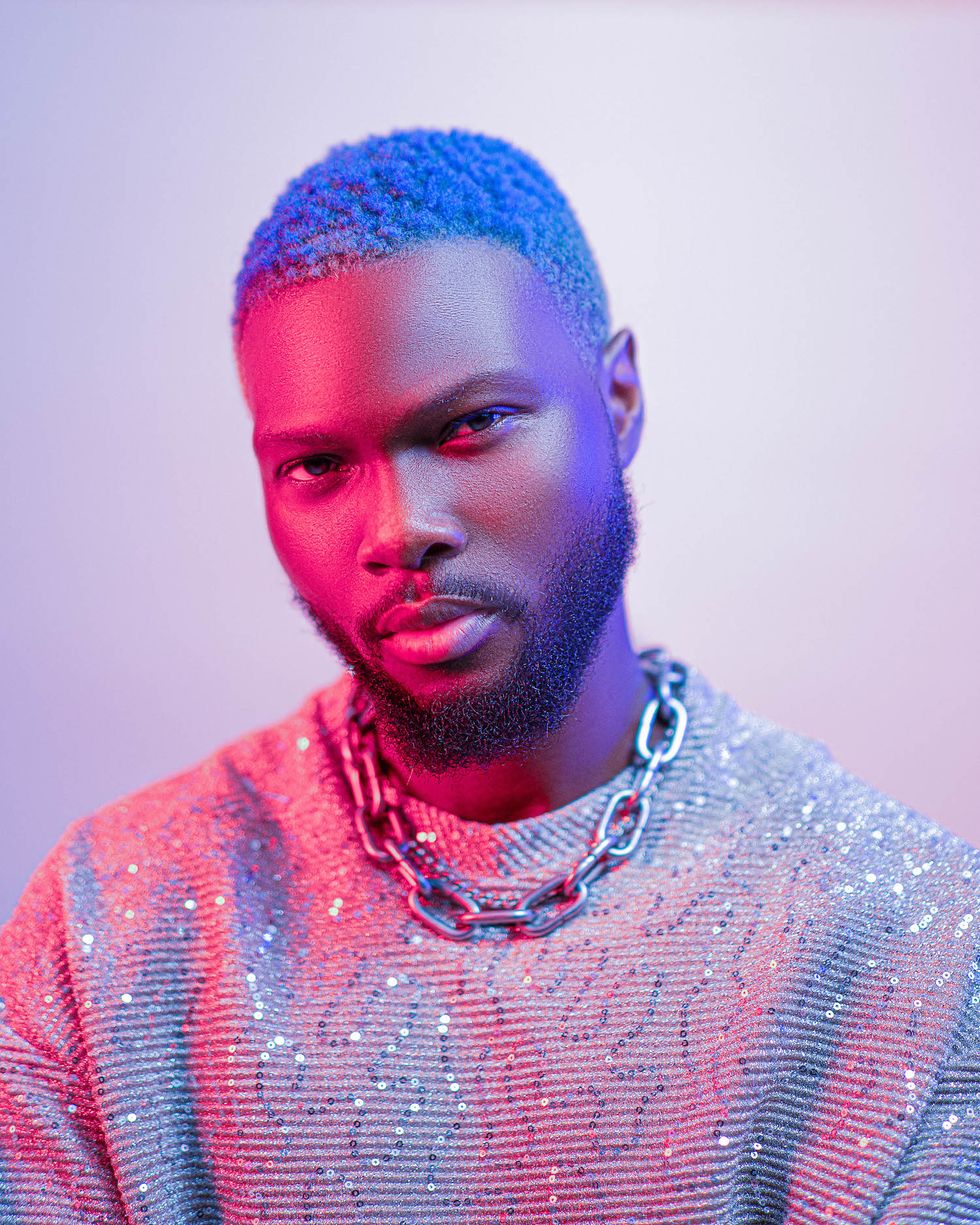
WurlD.
Image courtesy of the artist.
Have you had some personal experiences that threatened your mental wellness?
Sure. The nature of my job is all mental. The slightest distraction affects the productivity in being creative which is called writer's block. It's not easy waking everyday, pushing this thing called life. You're thinking of rent, bills, food you have to provide, pressure of helping family, being successful and not knowing how you'll do it. Those things create a lot of thinking that might lead to slight depression when it's not going right. For so long, I try to speak to myself about my values as an artist, that it doesn't come with immediate success or gratification. That itself [can] create some clinical depression as you're not seeing the immediate impact of your work because you choose to stay true to yourself. Waking up everyday to keep going is not easy.
Recently, I was cyber-bullied over something people took as another. Most of the words were harsh and it hit me how we don't speak well enough of that. We may look like we're shaking it off but really, some of these things affect us mentally and I think we should be kind and cautious of the things that we say to people. Everyone is fighting a battle, I'm fighting mine just trying to stick to my values and stay motivated to do what I love regardless of the ups and downs, the last thing I want to see or feel is somebody trying to bring me down or show me those things that I'm not happy with about myself.
In the Nigerian music scene, artists are expected to deliver multiple hits a year. How do you fare with this?
It messes with my mind. I won't lie because you become judged and measured by your last work or what people consider a hit, or what your biggest song is. This journey is beyond one song and I believe every song is another step. My goal with each drop is that it inspires people differently, the one that talks about love, sex, human, survival etc. The pressure for me now is looking forward to years ahead, how much lives can I impact with the music and the things that I do outside music.
Do you experience certain stressors that come with being a public figure?
I did and am still managing it. I find myself being patient in learning how to manage it and hoping that I make the best decisions per time. Psychologically, you can't always be free as you want to because there's that thing behind your mind about people. It's difficult knowing that you're judged anyway for whatever you do.
How do you actively protect your mental health?
I keep my surroundings very small, and position myself around places where I feel there's genuine love, like with family. I also reduce the amount of toxic things and people around me because they can make things worse. It's difficult to function around toxicity because you'll expend energy in reacting to everything else as you only know those toxic feelings. It's like waking up to always fighting someone you live with—sibling, parent, partner etc. That toxicity, emotion becomes your life. We need to be aware that we don't have control of what comes our way but how we react to the things that do is our call.
As artists are exposed to public commentary, does social media take a toll on your mental wellness?
It does. It also makes me stronger because I know who I am. Though I break down sometimes because I don't know it all. Thinking that I always have it in control doesn't always mean that I do. Sometimes, these things accumulate mentally and explode.
How can the music industry better support artists here?
Let's keep speaking about it, sharing conversations of love, positivity towards mental health awareness, so people know they're not alone. There's so much comfort in feeling and knowing you're not alone because somebody said something relatable. It makes one feel more comfortable and more open for discourse. That's a step forward.
Jahblend
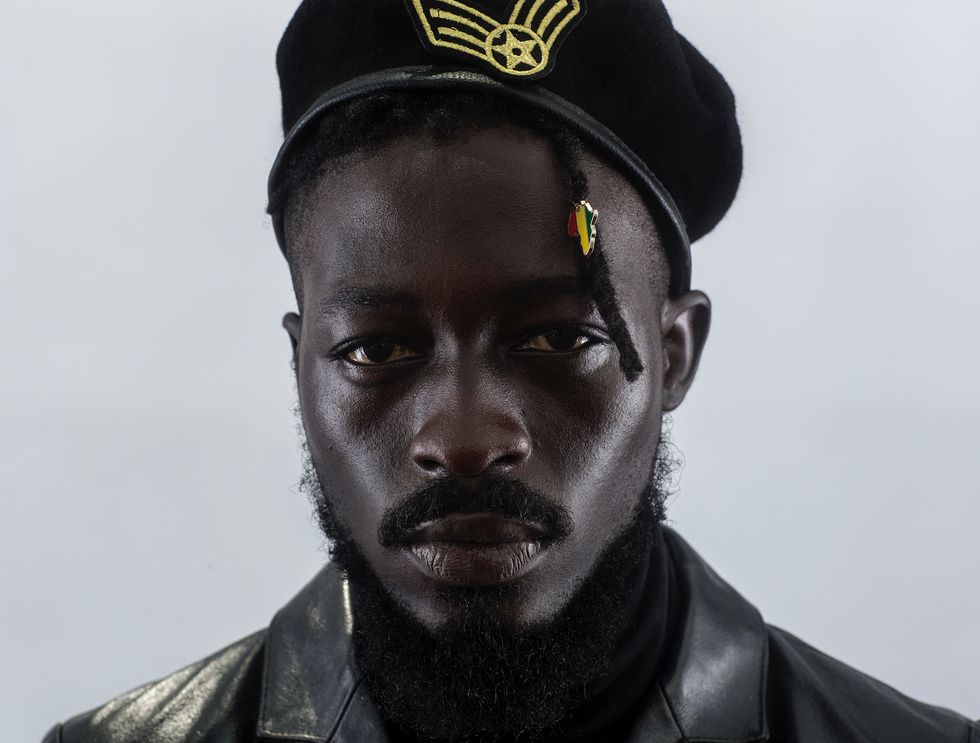
Jahblend.
Image courtesy of the artist.
When did you first become aware of your own or other peoples' mental health issues?
I didn't get to know about it until 3-4 years ago courtesy of Sheifunmi Yusuf. Before then, I just know I'll feel some type of way and tell myself I'll be fine in a couple hours. I didn't know it had a name or relative approach that can make one feel better.
Can you recount a personal experience that threatened your mental wellness?
Between October and November 2019, I had seven unsavoury encounters with the police. I've heard about police brutality and unlawful arrest of youths but experiencing it was too much to handle. That experience and PTSD I still suffer from sighting police vehicles inspired "Black on Black" and the overall project, Compos Mentis meaning awareness of the mind. Sometimes, there's also the case of creating to the satisfaction of the team, the fans and yourself so that you can unfeignedly market the product.
How do you protect your mental health in all of these?
Being positive helps me, believing even though the first five steps don't turn out nice, the next step would. Also, I'm an open book to the people around and when I tell someone what I'm going through, at least it gets solved half way.
As artists are subject to public commentary, does social media take a toll on your mental wellness?
I've been able to get myself to a point where I understand that people say things momentarily because I'm sure in the next 2-3 days, they won't remember their comments. I caution myself not to care about it to an extent where it breaks me because my head is filled with plans, visions, next steps; so for what anyone says that is not constructive, I take out what's probably important and keep it moving.
How can the music industry better help artists?
Sensitization will go a long way, probably through artist managers or people they respect. You can't find remedy for a problem you don't know about, you have to first identify the problem. To an extent, sensitization precedes seeking therapy because without profound knowledge on the subject matter, it won't be taken seriously.
Tems

Tems.
Image courtesy of the artist.
"Free Mind" off For Broken Ears seemed like a diary entry of the mentally strained. How do you protect your own mental health as a public figure?
Music gets me through anything even when it comes to mental health. If I'm feeling anything, once I press any keys, once I start to sing on my own, release my words into my music, I'm happy. Once you start finding out where you came from, how you come to be, what's inside of you, who you really are—not who or what society says, it clears everything.
As artists are subject to public commentary, does social media take a toll on your mental wellness?
Not at all. For you to feel what people say, you have to put things into context. When someone calls me or my art "wack," the question is "where's that person tweeting from?" That person might be in Lekki, or just turning on their generator somewhere, or drinking garri, etc. You don't know where that person is, so how does their opinion affect where you're going, your vision? Their opinion doesn't mean that other people won't listen to Tems. I believe you can't be a victim unless you position yourself as one. At least, these opinions don't take away my voice and ability to make music and that's all I'm here to do. These are human beings like you and I. You can't always give in to pressure, you should rise above it.
- In 'Aba Women Riot' Nigerian Artist, Fred Martins, Reinterprets a ... ›
- Spotlight: Akintayo Akintobi's Impressionist Paintings Are Steeped in ... ›
- Laolu Senbanjo Blasts British Artist for Poaching Nigerian Art ... ›
- 'Fruits of Naij' Is the Exhibition Highlighting Young Nigerian Artists ... ›
- Joe Kay Focuses on Nigerian Music in This Episode of Soulection ... ›
- 5 Nigerian Hyper-Realist Artists You Should Know - OkayAfrica ›
- 5 Artists From the Nigerian New Wave Who Are Shaping the Future ... ›
- South Africans Are Trying to Figure Out Why Nigerian Musicians ... ›
- 5 Nigerian Artists to Watch in 2019 - OkayAfrica ›
- The 20 Best Nigerian Songs of 2019 - OkayAfrica ›
- Interview: Tems Is Ready to Help You Find Healing - OkayAfrica ›
- Joeboy Shares Visuals for New Track 'Lonely' - OkayAfrica ›
- Tems Drops Extraterrestrial-Inspired Music Video for 'The Key' - OkayAfrica ›
- Tems Drops Extraterrestrial-Inspired Music Video for 'The Key' - OkayAfrica ›
- A Candid Conversation With Olamide & Fireboy DML - OkayAfrica ›
- Tems Will Appear On Drake's 'Certified Lover Boy' - OkayAfrica ›
- Listen to Tems' New EP 'If Orange Was A Place' - OkayAfrica ›
- WHO Launches Suicide Prevention Initiative in Africa - OkayAfrica ›
- The Visual Artist Inspiring Women to Live Freely Through Her Illustrations - OkayAfrica ›
- Heal by Hair Is Tackling Mental Health Crisis in Africa in a Unique Way - Okayplayer ›
- 10 African Songs About Mental Health - Okayplayer ›
- Watch Tems’ Jamaica-Shot Music Video for “Turn Me Up” - Okayplayer ›

